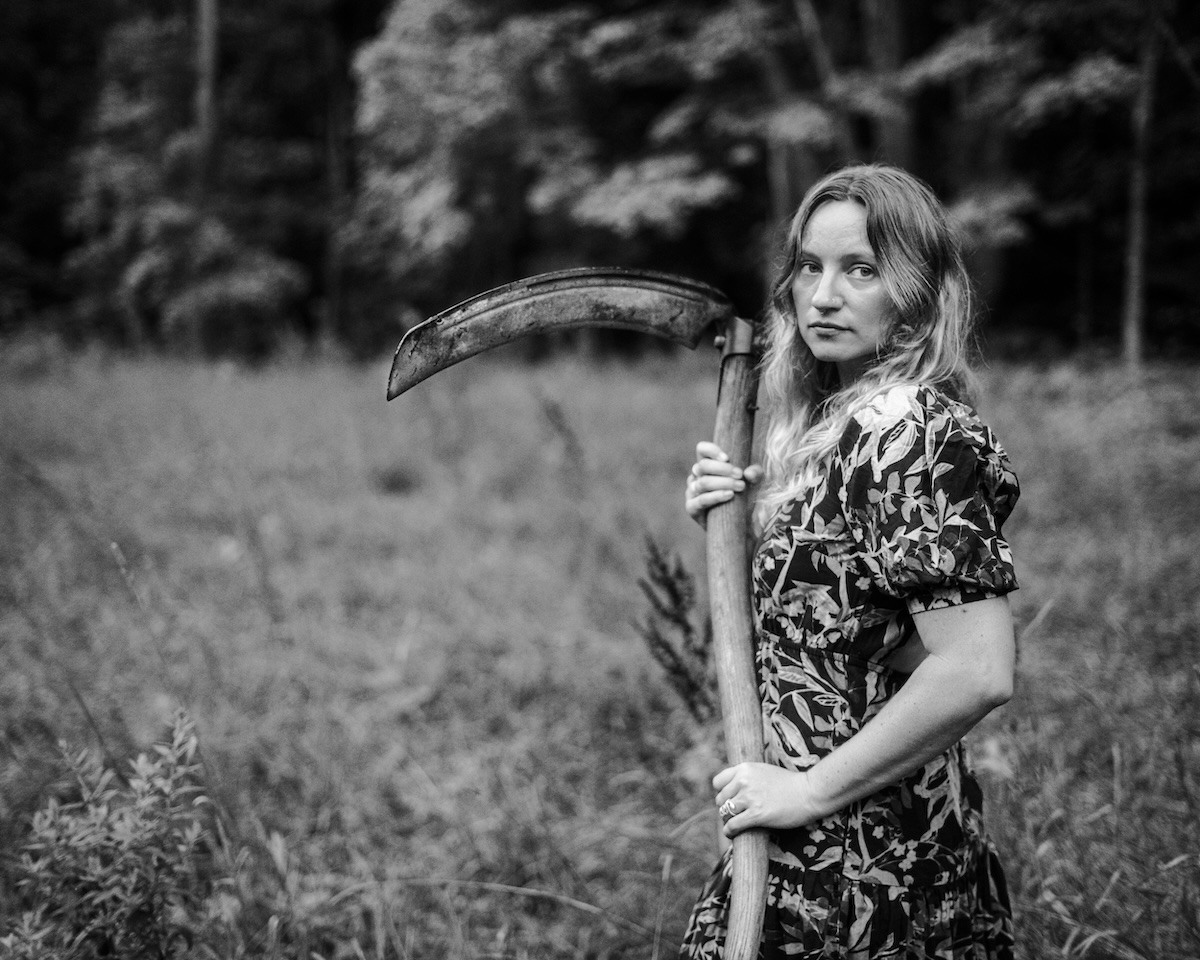Carolyn Kendrick’s new album, Each Machine, is more than a collection of songs—it’s a profound exploration of the human experience, weaving together history, politics, and personal reflection. Set for release on December 6, this thought-provoking project stands out in today’s folk scene for its creative blend of traditional and original material with archival soundscapes and poetry. “I hope it’s a place for people to meditate a little,” Kendrick said in a recent interview with Backstage Bay Area. “That’s what the project was for me.”
The Stockton-born artist, now based in Los Angeles, brings a lifetime of musical influences to this record. Raised by musician parents, she grew up steeped in jazz, folk, and classic rock, eventually finding her footing in roots music while studying at Berklee College of Music. “My dad’s a jazz drummer, so I grew up listening to a lot of jazz, Billie Holiday, Willie Nelson, The Beatles, and the Grateful Dead,” she shared. “There was always this combining of improvisation and song, which shaped my approach to music.”
Each Machine reflects that eclectic background while tackling complex themes inspired by her work on the podcast You’re Wrong About, where she researched cultural phenomena like the Satanic Panic. “Learning about moral panics and how they happen across history made me think about the systems we engage with in our daily lives,” Kendrick explained. “What does it mean to interface with the machine of power, capitalism, or patriarchy?”
These ideas find their way into tracks like “Are You Washed,” which juxtaposes a 19th-century hymn with Ronald Reagan’s 1983 “Evil Empire” speech and a sermon on prosperity gospel. Another standout, “The Devil’s Nine Questions,” reimagines a traditional folk tune, with Kendrick exploring the darker impulses of human nature. “I wanted to think about how we’re not always clear on what motivates us, and what it would look like if we acknowledged that without shame,” she said.
Her creative process for this album shifted from melody-focused songwriting to a more concept-driven approach. “Over the last handful of years, I’ve been getting into poetry, and a lot of this record started from a lyrical perspective,” Kendrick said. The album’s title comes from Rainer Maria Rilke’s Sonnets to Orpheus, reflecting her fascination with the interplay between creation and destruction.
Collaboration played a key role in shaping the sound of Each Machine. Kendrick worked closely with Isa Burke, a fellow Berklee alum and longtime friend. “Isa and I both love experimenting with instruments and sounds,” she said. “On ‘Devil’s Nine Questions,’ it’s just the two of us playing everything—electric guitar, chimes, all of it. It was such a fun and rewarding process.”
Bay Area fans will find a local connection in the song “Leela,” based on a Nepalese folk melody brought into the folk community by Bay Area musicians Willie Schwartz and Jody Stecker. “The lyrics—‘This world is just a game’—have always resonated with me,” Kendrick said. “It’s such a simple but profound reflection on life’s paradoxes.”
Kendrick’s live performances promise to bring Each Machine’s intricate arrangements to life. On December 5, the eve of her album release, she’ll take the stage at The Backroom in Berkeley, joined by musician Matt Schwartz. “We’ll play a lot from the album, but I’m also working on new material, so fans might get a sneak peek of what’s next,” she teased.
For Kendrick, folk music remains a powerful way to connect the past with the present. “Every era has its struggles, and folk music helps us learn from our ancestors while applying those lessons to today,” she said. With Each Machine, she invites listeners to reflect, connect, and confront the systems shaping our world.
Tickets for Carolyn Kendrick’s December performance at The Backroom are available now here. .
Don’t miss the chance to experience this innovative artist’s unique vision firsthand.
Listen to the interview:



